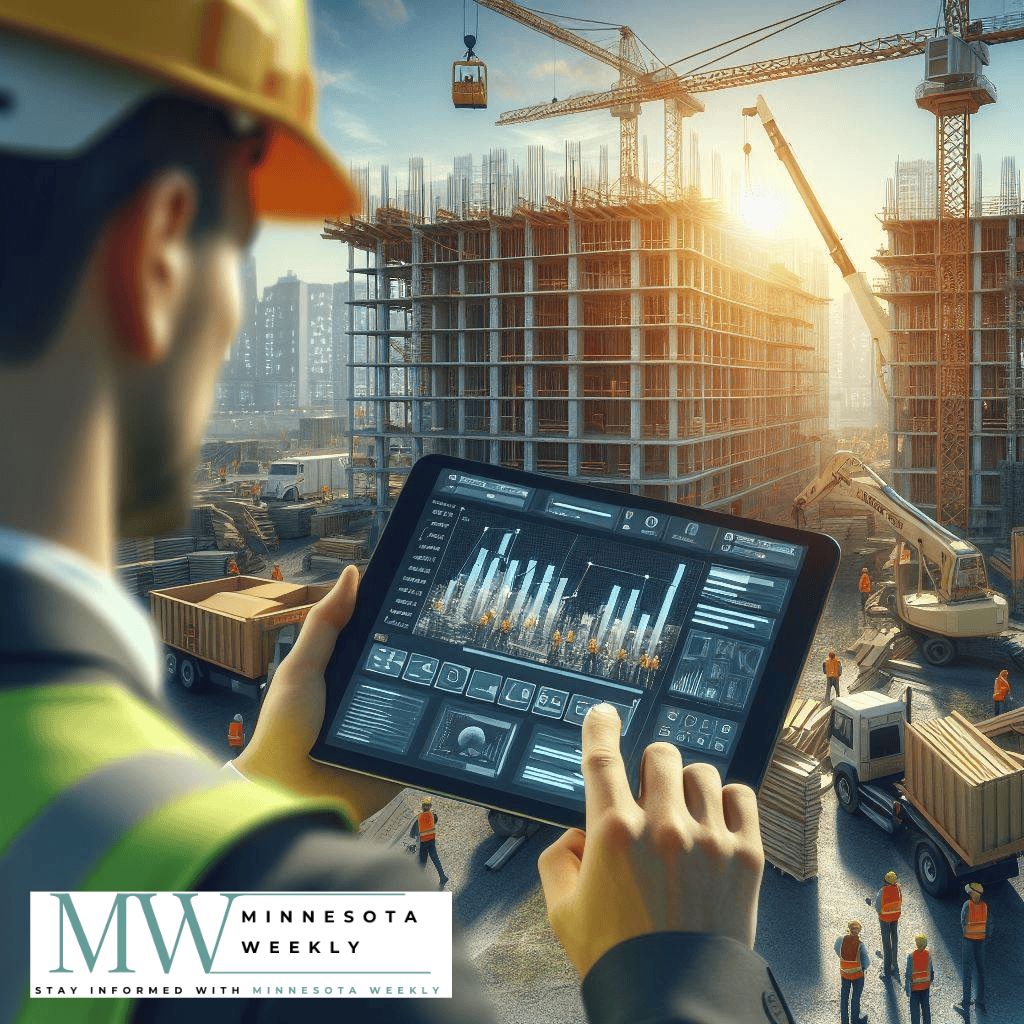5 Must-Read Construction Erp Software News.Ticbus.Com
The construction industry is undergoing a digital revolution, shedding the shackles of siloed data, paper-based processes, and communication breakdowns that plagued projects for decades. Forward-thinking construction firms are now wielding Construction Enterprise Resource Planning (ERP) software as a powerful weapon. This digital Swiss Army Knife streamlines operations boosts efficiency across the board, and equips them with the sharp data-driven insights needed to gain a competitive edge in the modern building landscape.
This comprehensive guide dives deep into the latest construction ERP software news, exploring industry trends, innovative features, and the undeniable benefits this technology offers. We’ll equip you with the knowledge to make informed decisions for your construction business, unveiling how construction ERP software can transform your project delivery, optimize resource allocation, and empower your teams to achieve peak performance.
Why Construction Needs ERP Software
The construction landscape is complex, with numerous moving parts. From the meticulous planning and scheduling of multi-phase projects to the precise procurement of materials, construction firms juggle a multitude of tasks simultaneously. Ensuring efficient cost management, maintaining seamless communication across diverse teams, and overseeing effective field operations all contribute to a project’s success. This intricate web of interconnected tasks demands a centralized and powerful solution for maximized efficiency and minimized errors.
Here’s where construction ERP software shines. It acts as a central nervous system, integrating various business functions into a unified platform. This empowers construction companies to:
- Enhance Project Visibility and Control: Gain real-time insights into project progress, resource allocation, budgets, and potential risks.
- Boost Collaboration: Facilitate seamless communication between teams, from the back office to the field.
- Optimize Resource Management: Efficiently manage manpower, equipment, and materials to minimize waste and maximize productivity.
- Strengthen Financial Management: Track project costs accurately, generate detailed reports and ensure timely invoicing.
- Improve Risk Mitigation: Identify and address potential problems proactively, minimizing project delays and cost overruns.
Top Construction ERP Software Trends to Watch
The construction ERP software market is constantly evolving. Here are some of the hottest trends shaping the industry:
- Cloud-Based Solutions: Cloud-based construction ERP offers unmatched scalability, accessibility, and real-time data synchronization.
- Mobile Integration: Construction ERP software is increasingly mobile-friendly, allowing field crews to access crucial project data and updates on the go.
- Data Analytics and Business Intelligence (BI): Advanced analytics empower construction firms to leverage data for informed decision-making, optimize processes, and improve project outcomes.
- Integration with Construction Management Technologies: Construction ERP is integrating seamlessly with drones, Building Information Modeling (BIM), and other innovative technologies for enhanced project visibility and control.
- Focus on User Experience (UX): Construction ERP vendors are prioritizing user-friendly interfaces and intuitive workflows to ensure smooth adoption by diverse teams.
Benefits of Implementing Construction ERP Software
The advantages of implementing construction ERP software are undeniable. Here’s a closer look at the tangible benefits construction firms can expect:
- Increased Efficiency and Productivity: Streamlined workflows and improved collaboration lead to faster project completion times and reduced costs.
- Enhanced Profitability: Improved cost control, resource management, and project visibility contribute to higher profit margins.
- Reduced Risks: Proactive risk identification and mitigation strategies minimize project delays and unexpected disruptions.
- Improved Client Satisfaction: Enhanced communication and project transparency lead to happier clients and stronger relationships.
- Scalability for Growth: Construction ERP software can scale alongside your business, supporting your growth aspirations.
Choosing the Right Construction ERP Software
With a plethora of construction ERP software options available, selecting the right solution can be daunting. Here are some key factors to consider:
- Company Size and Needs: Different types and sizes of construction companies have varying needs. Consider solutions tailored to your specific requirements.
- Features and Functionality: Evaluate the functionalities your team needs most, such as project management, budgeting, field management, and reporting.
- Scalability: Choose a solution that can grow with your business, adapting to increasing project complexity and team size.
- Integration Capabilities: Ensure the ERP software integrates seamlessly with existing software you use, such as accounting software or project management tools.
- Implementation and Support: Prioritize vendors offering robust implementation services and ongoing support to ensure a smooth transition and maximize user adoption.
The Future of Construction ERP Software
The future of construction ERP software is brimming with exciting possibilities. Here’s what we can expect:
- Artificial Intelligence (AI) and Machine Learning (ML): AI and ML will play a vital role in automating tasks, predicting project outcomes, and recommending optimal resource allocation.
- Advanced Analytics and Reporting: Construction ERP software will offer more sophisticated analytics dashboards and reporting capabilities, enabling data-driven decision-making at all levels.
- Enhanced Integration with Construction Technologies: ERP software will seamlessly integrate with emerging technologies like virtual reality (VR) and augmented reality (AR) for enhanced project visualization and collaboration.
- Focus on Sustainability: Construction ERP software will evolve to support sustainable construction practices by tracking resource consumption and enabling eco-friendly project management.
Conclusion
In today’s competitive construction landscape, embracing construction ERP software is no longer a luxury; it’s a necessity. By harnessing the power of this technology, construction firms can streamline operations, build smarter, achieve lasting success, and gain a significant edge over competitors who are still relying on outdated methods. This translates to winning more bids, fostering stronger client relationships, and ultimately, building a more secure and profitable future for their business.
Construction ERP Software FAQs
- What is Construction ERP Software?
Construction Enterprise Resource Planning (ERP) software is a centralized platform that integrates various business functions specific to the construction industry. It streamlines workflows, improves collaboration, and provides real-time data insights for smarter decision-making.
- What are the benefits of using Construction ERP Software?
Benefits include increased efficiency, improved project visibility, enhanced cost control, reduced risks, better client satisfaction, and scalability for growth.
- Is Construction ERP Software right for my construction company?
Construction ERP software is beneficial for companies of all sizes. Evaluate your company’s needs and choose a solution that offers features and functionalities that address them.
- What are some key features to look for in Construction ERP Software?
Look for features like project management tools, budgeting functionalities, field management capabilities, reporting tools, and seamless integration with existing software.
- What is the difference between Cloud-Based and On-Premise Construction ERP Software?
Cloud-based solutions offer greater accessibility and scalability, while on-premise solutions provide more control over data security.
- How much does Construction ERP Software cost?
Costs vary depending on the features, functionality, and number of users. Consider upfront licensing fees, ongoing subscription costs, and potential implementation expenses.
- Is Construction ERP Software difficult to implement?
Implementation timelines vary, but choosing a vendor with robust implementation services can ensure a smooth transition and maximize user adoption.













Post Comment